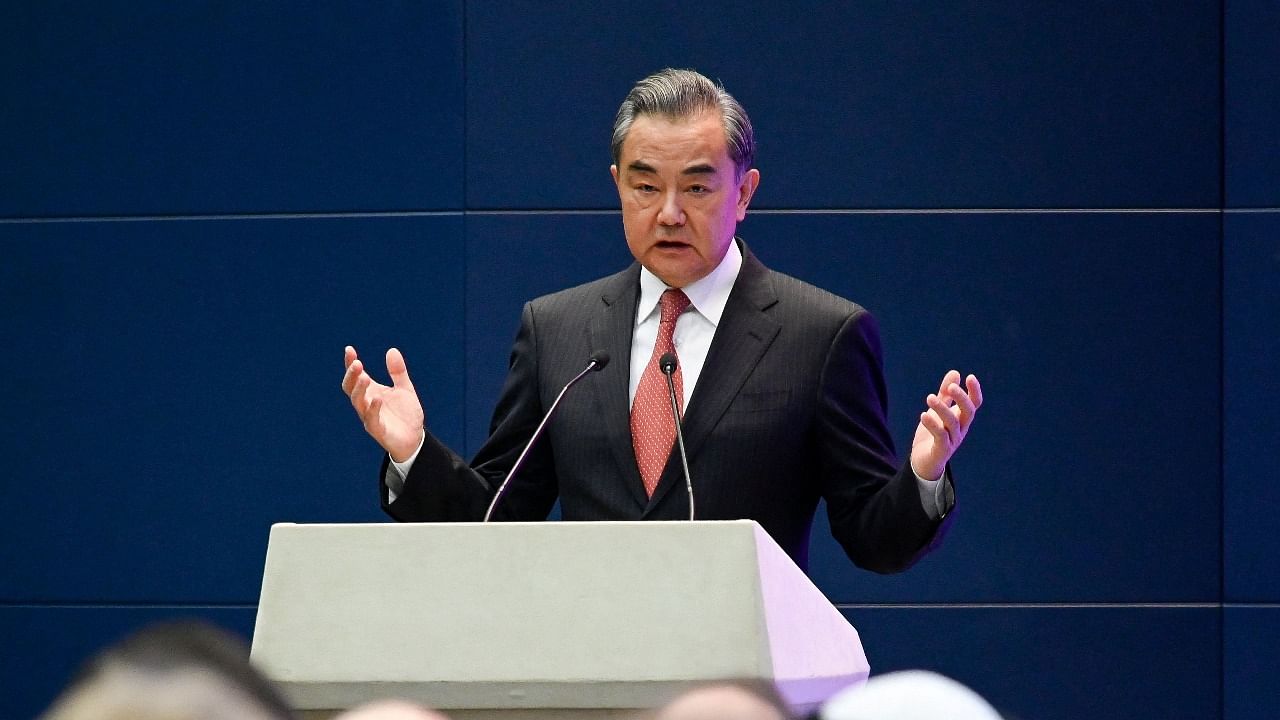
Chinese Foreign Minister Wang Yi said on Sunday that the US view on China has "seriously gone awry" and Beijing will not give in to "blackmail and coercion", in a sharp retort to his American counterpart Antony Blinken's remarks identifying China as "the most serious long-term challenge to the international order”.
Addressing an audience at US-based George Washington University on Thursday, Blinken said China is the only country with both the intent to reshape the international order and, increasingly, the economic, diplomatic, military, and technological power to do it.
He called China "the most serious long-term challenge to the international order", and the US, while stepping up competition with "invest, align, compete" strategy, will, however, avoid conflict or a new Cold War with the Communist country.
While the Chinese Foreign Ministry hit back by terming Blinken’s observations as a smear campaign by the US, the Chinese Foreign Minister Wang Yi who is currently touring Pacific countries said Blinken's speech outlining the US strategy towards China showed the US view on has “gone seriously awry”.
Chinese leaders have pointed out that whether China and the United States can properly handle their relationship matters to the future of the world, and it is a question of the century needed to be well answered by the two countries, Wang said during the visit of Fiji on Friday.
Before answering the question, the US side should first be aware that a unipolar hegemony will find no support, group confrontation has no future, building small yards with high fences means self-isolation and backwardness, and decoupling and cutting supplies only hurt others and itself as well, Wang said.
"We will never yield to blackmail or coercion, and will firmly defend China's sovereignty, security and development interests," state-run Xinhua news agency quoted him as saying.
Countries can stage fair competition with each other, and it is natural that China and the US have some competition between them, but it should not be a destructive one, Wang said.
In his speech, spanning over 40 minutes, Blinken outlined his administration's strategy toward China which included building up a network of allies and partners, acting with a common purpose and in common cause and referred to Washington's efforts to build close ties with India as well as the recent Quad meeting in Tokyo.
"And we're standing up new coalitions to deliver for our people and meet the tests of the century ahead. Nowhere is this more true than in the Indo-Pacific region, where our relationships, including our treaty alliances, are among our strongest in the world, he said.
Blinken has also repeatedly stressed that the US does not seek to stymie China as a world power or change its political system, nor does it seek a clash with it.
"We are not looking for conflict or a new Cold War. To the contrary, we're determined to avoid both," Blinken said.
He said the US is ready to strengthen diplomacy and increase communication with China "across a full range of issues" and is prepared to work together on matters of mutual interest like climate change and Covid-19, noting that "even as we invest, align and compete, or together with Beijing, where our interests come together".
"We can't let the disagreements that divide us stop us from moving forward on the priorities that demand that we work together for the good of our people and for the good of the world," Blinken said.
Blinken said US President Joe Biden during his recent trip to the Asian region, reaffirmed US' vital security alliances with South Korea and Japan, and deepened its economic and technology cooperation with both the countries.
Biden launched the Indo-Pacific Economic Framework (IPEF) for prosperity, a first-of-its-kind initiative for the region.
In the President's words, it will 'help all our countries' economies grow faster and fairer, Blinken said.
"IPEF, as we call it, renews American economic leadership but adapts it for the 21st century by addressing cutting-edge issues like the digital economy, supply chains, clean energy, infrastructure, and corruption, he said.
A dozen countries, including India, have already joined. Together, IPEF members make up more than a third of the global economy, Blinken said.
The president also took part in the leaders' summit of the Quad countries...It is becoming a leading regional team. This week, it launched a new Indo-Pacific Partnership for Maritime Domain Awareness, so our partners across the region can better monitor the waters near their shores to address illegal fishing and protect their maritime rights and their sovereignty, he said.
We're enhancing peace and stability in the Indo-Pacific; for example, with the new security partnership between Australia, the UK and the US, known as AUKUS, Blinken said.
The Biden administration's approach will be "invest, align, compete", he said, adding that although the US does not seek conflict with China, it is prepared to defend its interests.
Blinken sought to underscore the degree to which the Washington-Beijing relationship is "one of the most complex and consequential relationships of any that we have in the world today".
As he broadly described how the US intends to approach that relationship, Blinken drew sharp distinctions between the two nations, describing things like China's "repressive" government, unfair trade practices and human rights abuses.